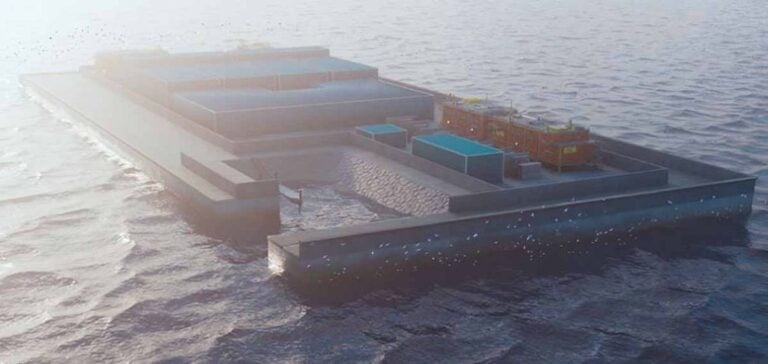Located about 45 kilometers off the Belgian coast, the artificial island named “Princess Elisabeth” is a major initiative in Belgium’s energy transition. This project spans six hectares and consolidates facilities for transporting electricity from multiple offshore wind farms. With the integration of transformers and undersea cables, this platform is meant to serve as an “electric hub” to channel electricity to Belgium and neighboring European countries. Launched in 2021, this project is seen as a key step toward reducing Belgium’s dependence on fossil fuels.
The Belgian government plans to install offshore wind farms with a capacity of 3.5 gigawatts (GW), enough to cover nearly 30% of national energy needs and power all Belgian households. However, the project’s scope and ecological ambitions face an unprecedented surge in costs. Initially estimated at €2.2 billion, the budget for Princess Elisabeth Island was recently re-evaluated to €7 billion, a tripling that alarms political and industrial stakeholders.
Complex Financial and Geopolitical Factors
Belgian Minister of Energy, Tinne Van der Straeten, expressed concern over this cost surge. She attributes it to the Ukraine conflict and Europe’s dependency on Russian gas, which indirectly drove up the prices of equipment and materials needed for the project. “Every country wants to buy the same equipment: cables, AC/DC converters for electricity, and even access to ships,” stated Frédéric Dunon, CEO of Elia Transmission Belgium, the company overseeing the project.
These constraints have also delayed the project’s construction. The costs of materials and the logistical challenges of constructing this island in open sea forced Elia to revise its initial budget and seek financial support from the European Investment Bank, which granted a loan of €650 million to help finance the project.
Impact on Consumers and Political Debate
The Belgian industrial sector, the largest energy consumer, fears that budget overruns will lead to increased electricity bills. Some voices among industrialists and economists are questioning the project’s economic viability and are calling for a revision of its initial objectives. Meanwhile, environmental NGOs and green political parties continue to support the project, emphasizing its positive impacts on marine biodiversity, including the installation of an artificial reef and measures to protect seabirds.
Despite this support, European funding may not be sufficient to cover the budget deficit, and concerns are emerging about the future Belgian government’s ability to support such an investment given the current austerity context.
An Essential Project Amid Climate Uncertainties
Princess Elisabeth Island is part of the European strategy to reach 42.5% renewable energy by 2030. With the rise of far-right politics in Europe and climate-skeptical rhetoric, the completion of this artificial island holds symbolic value for environmentalists, who fear a return to fossil fuels if the project were interrupted.
Minister Van der Straeten stresses the necessity of “transformative projects” for the European Union’s energy future. She highlights that large-scale infrastructure investments are essential to meet carbon neutrality goals. The debate on the sustainability of this North Sea project extends beyond Belgium, shedding light on the financial and political challenges that large-scale ecological initiatives face in Europe.






















